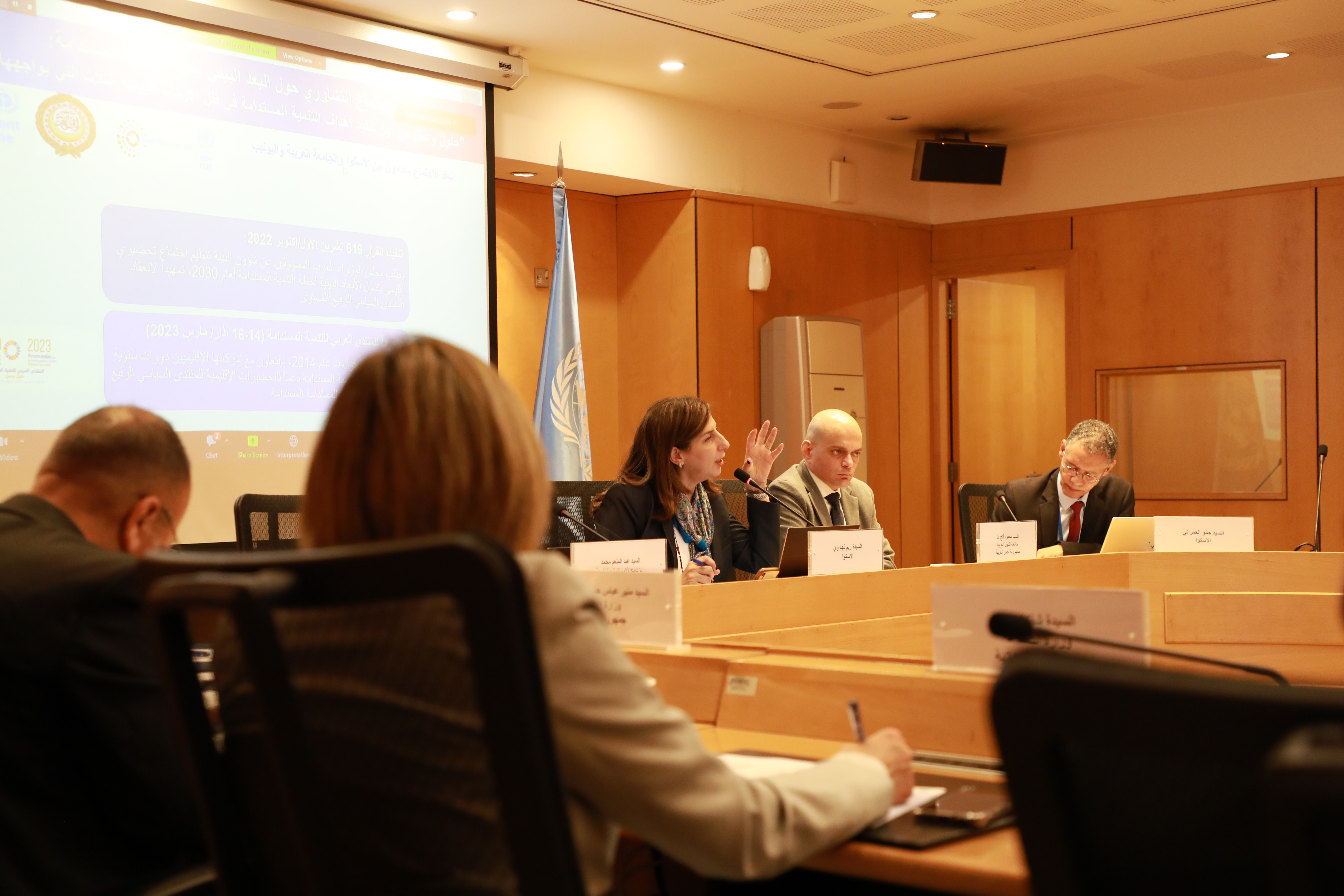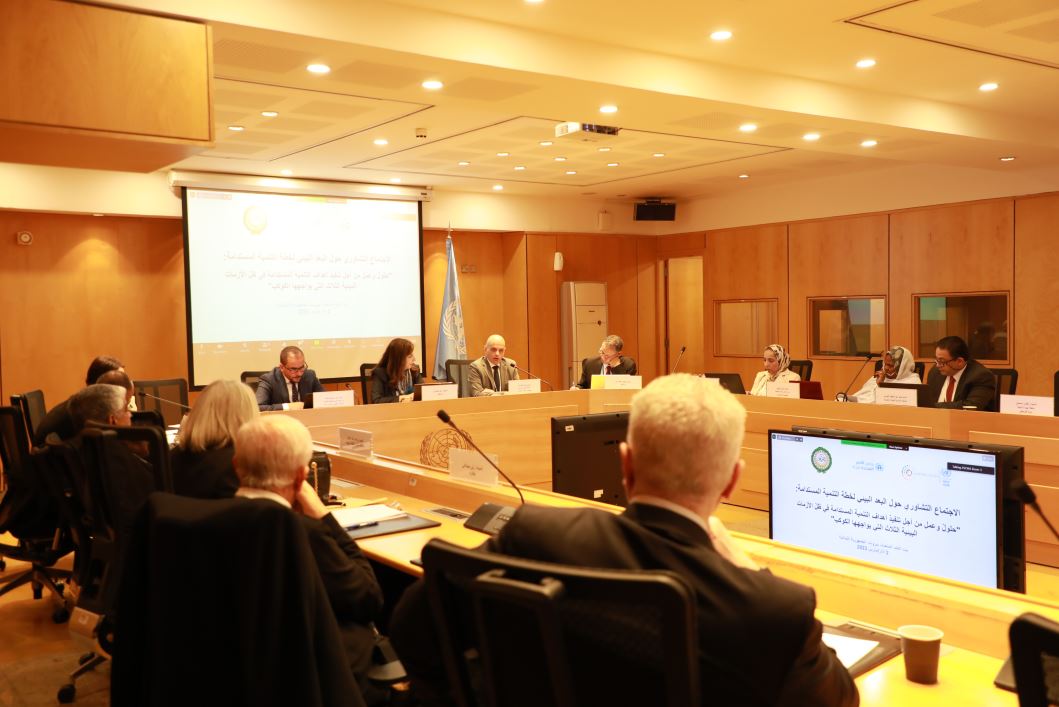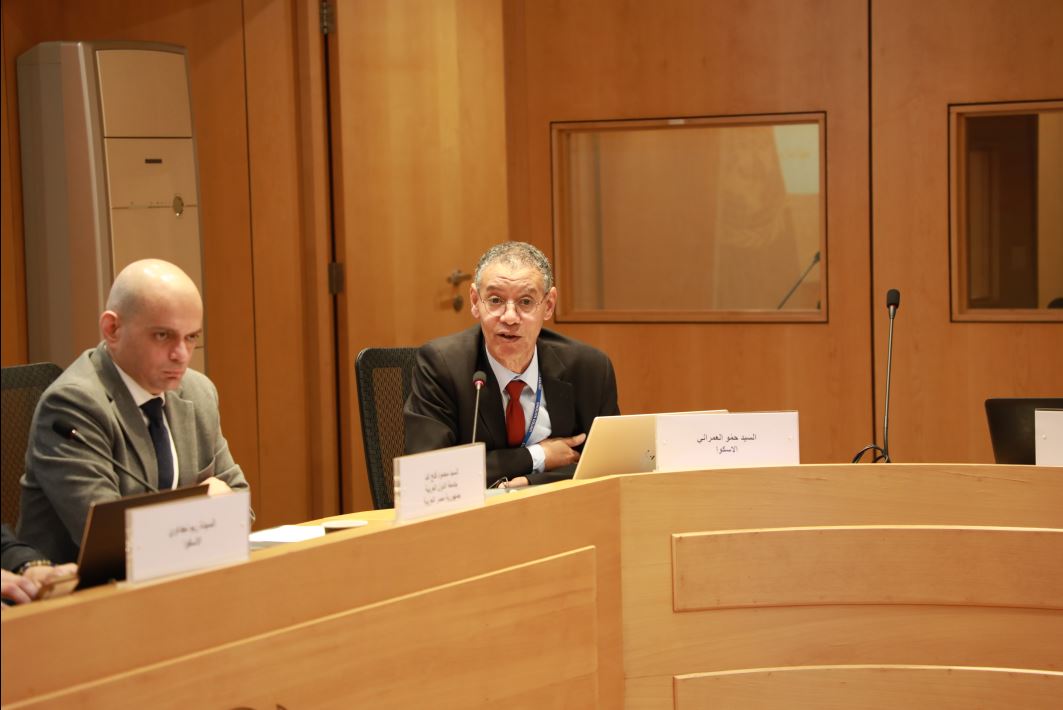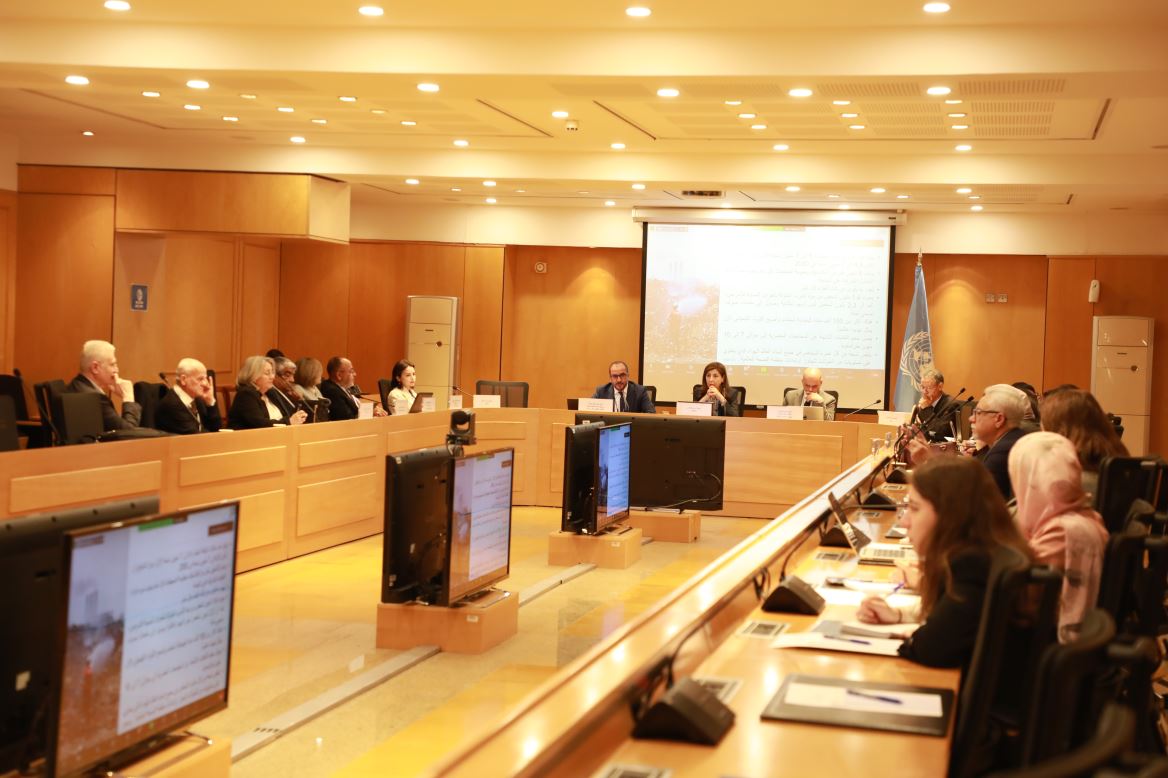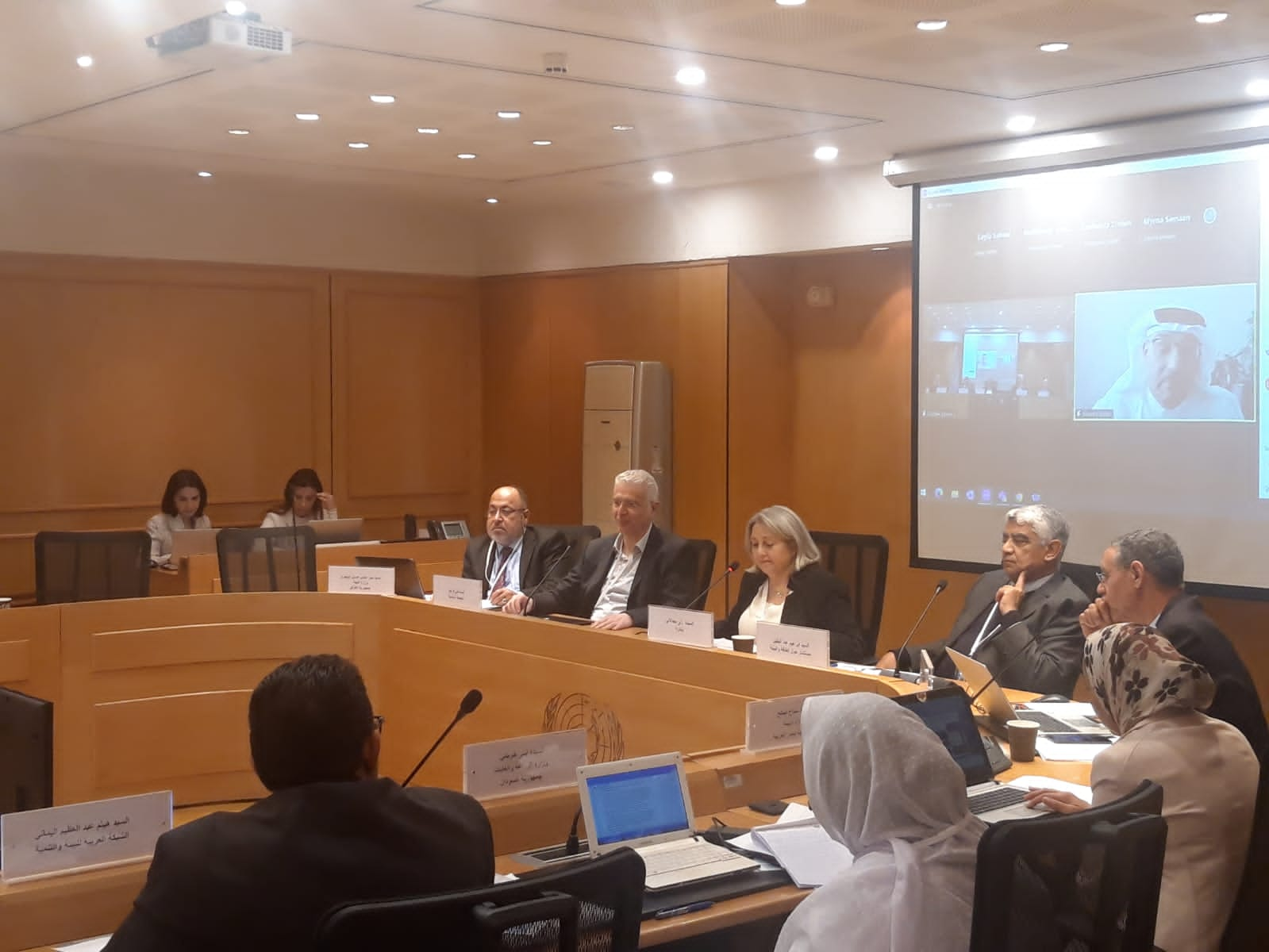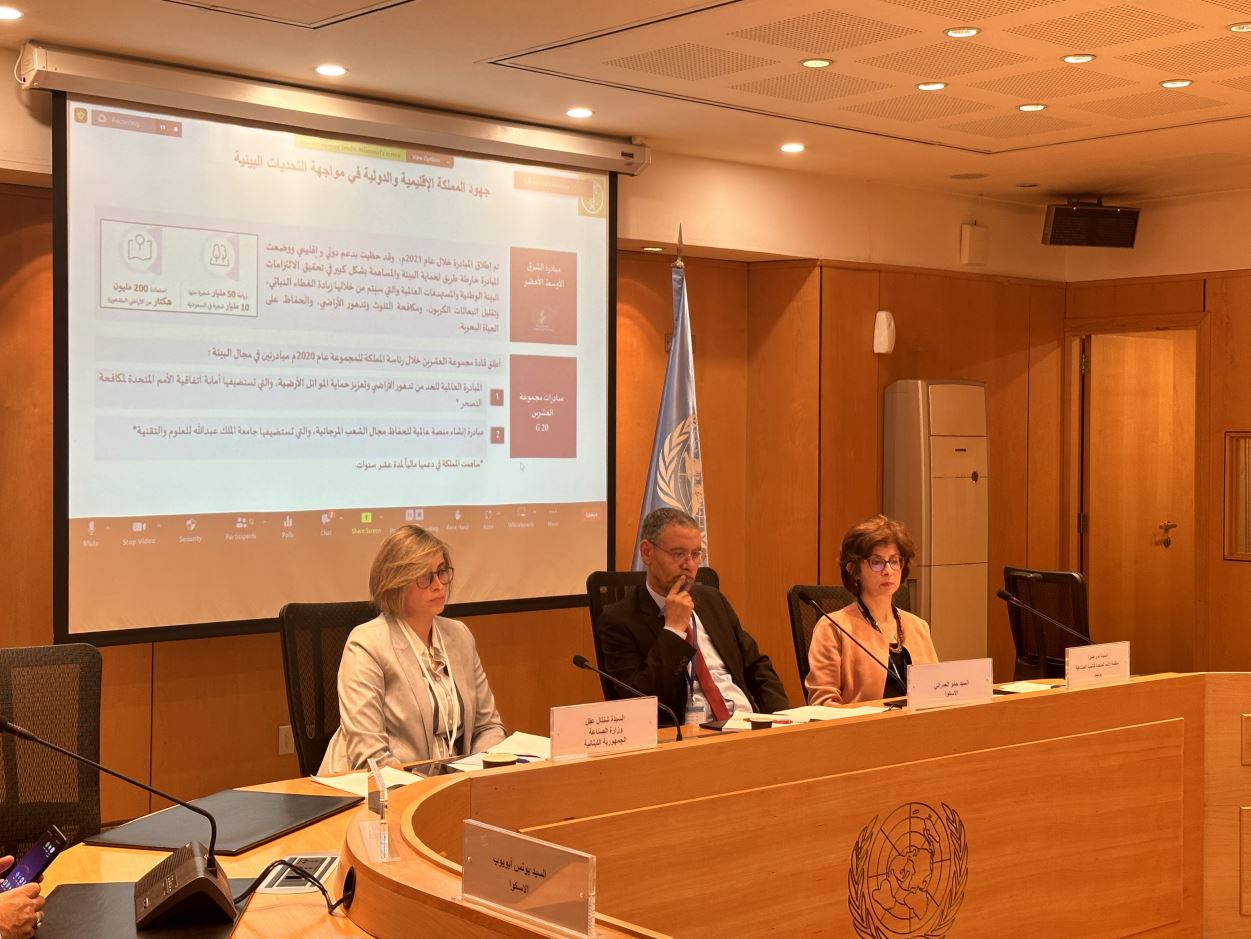In preparation for the Arab Forum for Sustainable Development 2023, ESCWA, in cooperation with the United Nations Environment Programme's Regional Office for West Asia and the League of Arab States, is organizing a regional consultative meeting on the environmental dimension of the 2030 Agenda for Sustainable Development, with particular focus on the Sustainable Development Goals (SDGs) under review at the 2023 High-Level Political Forum: SDGs 6, 7, 9, 11 and 17.
The meeting is titled “Solutions and Action for SDG implementation amid the triple planetary crisis”. The triple planetary crisis refers to climate change, biodiversity loss and pollution.
The objectives of the meeting are to:
- Discuss actions and solutions to address environmental challenges and vulnerabilities affecting the achievement of the SDGs
- Provide a platform for regional cooperation and partnerships to advance implementation of SDGs amid the triple planetary crisis
- Present national initiatives that can be scaled up for regional implementation.
